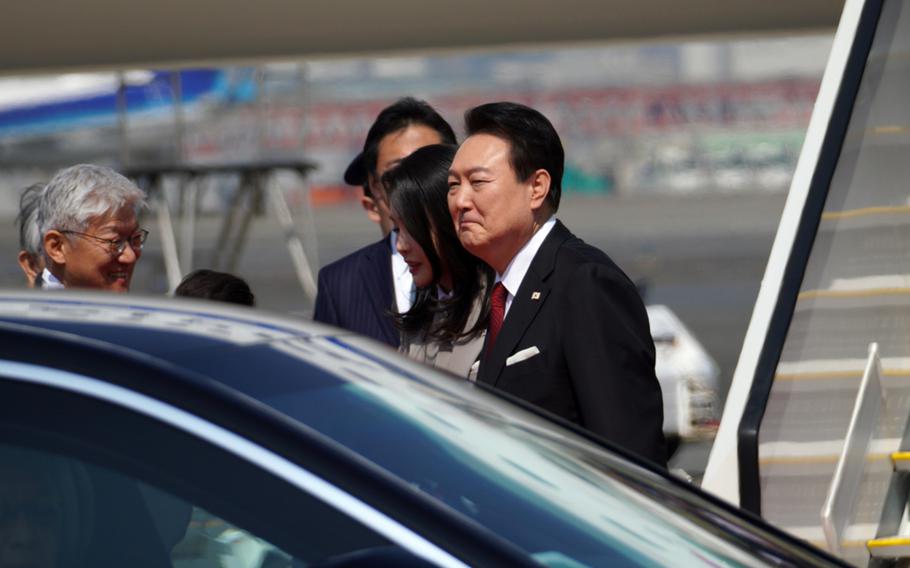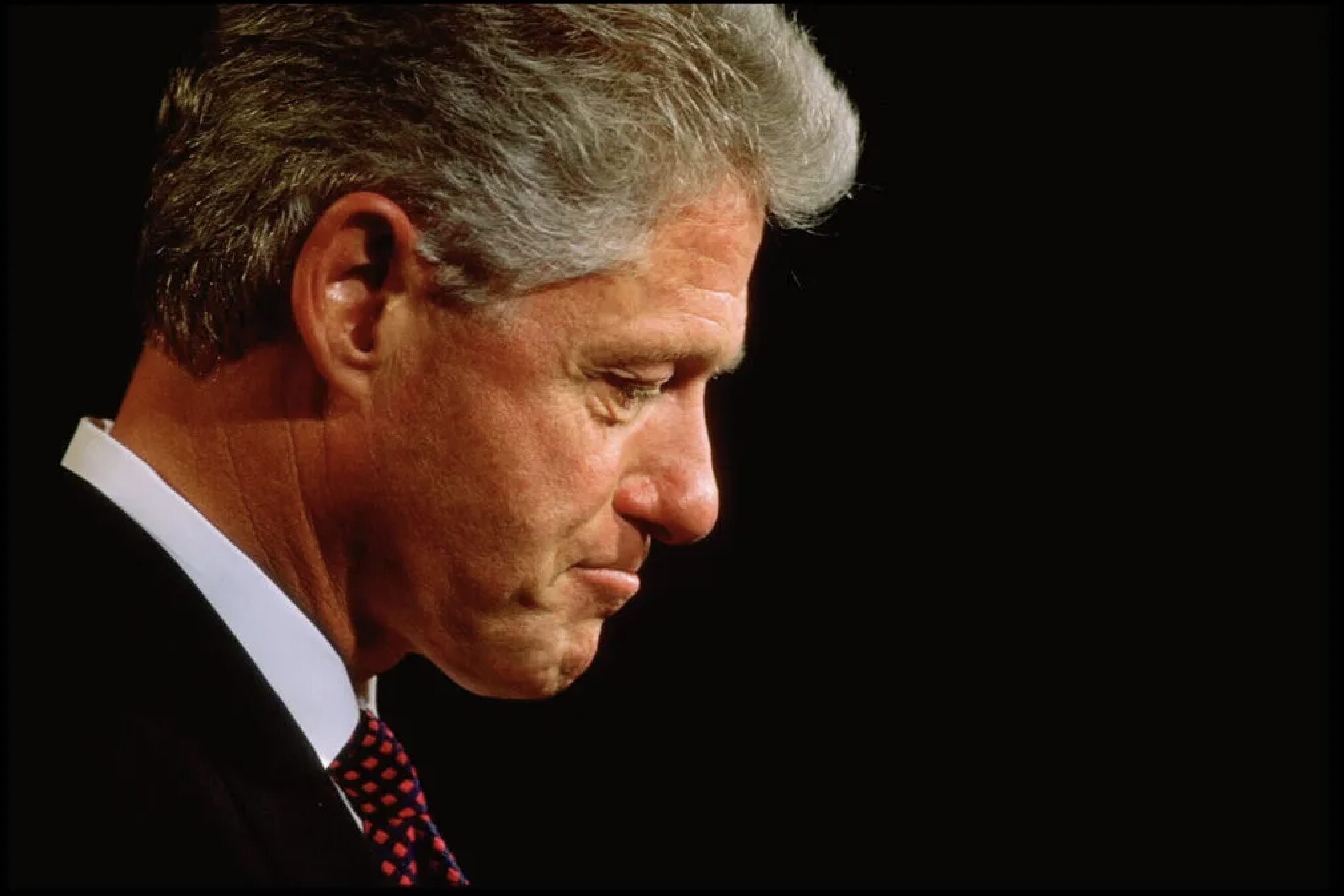
Dr. Sanjay Gupta: What Science Says About Cannabis
CBD and THC are being used more than ever for arthritis and joint pain. But does microdosing cannabis really help with inflammation, and what should…
Thought Leader: Sanjay Gupta

CAMP HUMPHREYS, South Korea — South Korea on Tuesday notified the Japanese government of its intent to renew an intelligence-sharing agreement to strengthen the countries’ military ties.
South Korea will continue to share military intelligence with Japan to “beef up close security cooperation … with an aim to respond to growing North Korean nuclear and missile threats,” according to a Ministry of Foreign Affairs press release.
The announcement comes five days after South Korean President Yoon Suk Yeol and Japanese Prime Minister Fumio Kishida held the first summit between their countries since 2011. Yoon flew to Tokyo on March 16 to renew ties that have been frayed for decades by historical and military differences.
During a cabinet meeting in Seoul on Tuesday, Yoon said South Korea-Japan relations were “on the brink of collapse” and that he would “remove obstacles that hinder … Korea-Japan relations,” according to a readout from the presidential office.
Yoon said he would approve a host of policies to “completely normalize” relations with Japan, including the renewal of the General Security of Military Information Agreement — a military intelligence-sharing pact created in 2016 to address threats from North Korea.
“The agreement will renew on Nov. 23 unless South Korea or Japan notifies the other of its intent to withdraw three months in advance. It was threatened with termination in 2019 by former South Korean President Moon Jae-in, who warned the United States and Tokyo that he would sunset the pact, citing Tokyo’s export controls against Seoul.
Senior U.S. officials warned against the notion. Former U.S. Defense Secretary Mark Esper described the agreement as an “important tool” for South Korea and Japan to share “effective and timely information, particularly in times of war,” during a news conference with his South Korean counterpart in Seoul in 2019.
“Expiration of the [agreement] would have an impact on our effectiveness, and so we’ve urged all sides to sit down and work through their differences,” Esper said. “The only ones who benefit from the expiration of [the agreement] and continued friction between Seoul and Tokyo are Pyongyang and Beijing.”
The agreement’s renewal is a critical move for regional security, particularly in the wake of North Korea’s provocations, foreign policy experts told Stars and Stripes on Tuesday.
Former CIA analyst Soo Kim, who now serves as the policy practice area lead for the LMI consulting firm, said Yoon and Kishida are “reviving the momentum that had been lost on security cooperation over North Korea.”
North Korea fired more than 70 missiles in 2022 and launched nine ballistic missiles so far this year. The regime’s state-run Korean Central News Agency continues to characterize the South and Japan as enemies and has warned it will preemptively strike if threatened.
“This is seen as an important step, not just for the immediate implications over the intelligence cooperation aspect,” Kim said in an email. “But more broadly, it’s one of a handful of steps Seoul and Japan are taking to improve all aspects of the bilateral relationship. Progress in one aspect of the relationship should, hopefully, impel progress and improvement in other aspects of Seoul-Tokyo ties.”
Kim added that the agreement signals to North Korea that “its efforts to disrupt the security of the region will be met with combined resistance” from South Korea, Japan and the United States.
“[North Korean leader Kim Jong Un] seeks to split the three countries apart and render them weak as a collective to confront [North Korea’s] challenge,” Kim said. “By taking steps to repair relations, Seoul, Tokyo, and Washington are demonstrating solidarity and like-mindedness in dealing with common threats to their security interests.”
Professor Hwang Jihwan of the University of Seoul’s International Relations Department said that in Seoul’s perspective, it was “quite inevitable” for it to normalize relations with Tokyo.
“We’ve seen a lot of missile tests from North Korea, so it’s quite necessary for both countries to have full cooperation in regard to information and intelligence issues on North Korea,” Hwang said by phone. “Moreover, I think that the U.S. also wants both South Korea and Japan to cooperate on this issue because the U.S. is now focusing on putting together [alliances] not only in order to respond to North Korean threats, but to also respond to rising concerns about China’s military.”
Dr. Sanjay Gupta: What Science Says About Cannabis
CBD and THC are being used more than ever for arthritis and joint pain. But does microdosing cannabis really help with inflammation, and what should…
Thought Leader: Sanjay Gupta
Niall Ferguson: What’s Trump’s plan with Iran, and beyond?
Is there a deeper strategy underlying President Trump’s actions? Dan is joined by historian, Free Press columnist, CBS contributor, and Senior Fellow at Hoover Institution…
Thought Leader: Niall Ferguson
Niall Ferguson: Trump, the Midterms, and the Six-Year Itch
Nearly every two-term president, from Truman to Obama, hits a wall in year six. Can Donald Trump avoid domestic-political disaster? In this Free Press essay,…
Thought Leader: Niall Ferguson

